Last week militants from the Islamic State of Iraq and Syria captured—at least for a while—a vital oil refinery in the town of Baiji in northern Iraq. The Islamists promptly cut off fuel supplies to the rest of Iraq, including Kurdistan.
The Iraqi army claims it has retaken Baiji. Regardless, in a country already panicking over the looming possibility of widespread sectarian warfare, a gasoline shortage—however long-lasting—was yet another stressor.
Kurdistan’s oil has been a critical factor in the semi-autonomous region’s success. Oil money has funded infrastructure and schools. But the Kurds don’t refine much of their own crude. And militants know it.
With Kurdish peshmerga troops sparring ISIS fighters around Kirkuk and Jalawla, the militants turned the screws where they knew it would hurt the most—in the Kurds’ gas tanks.
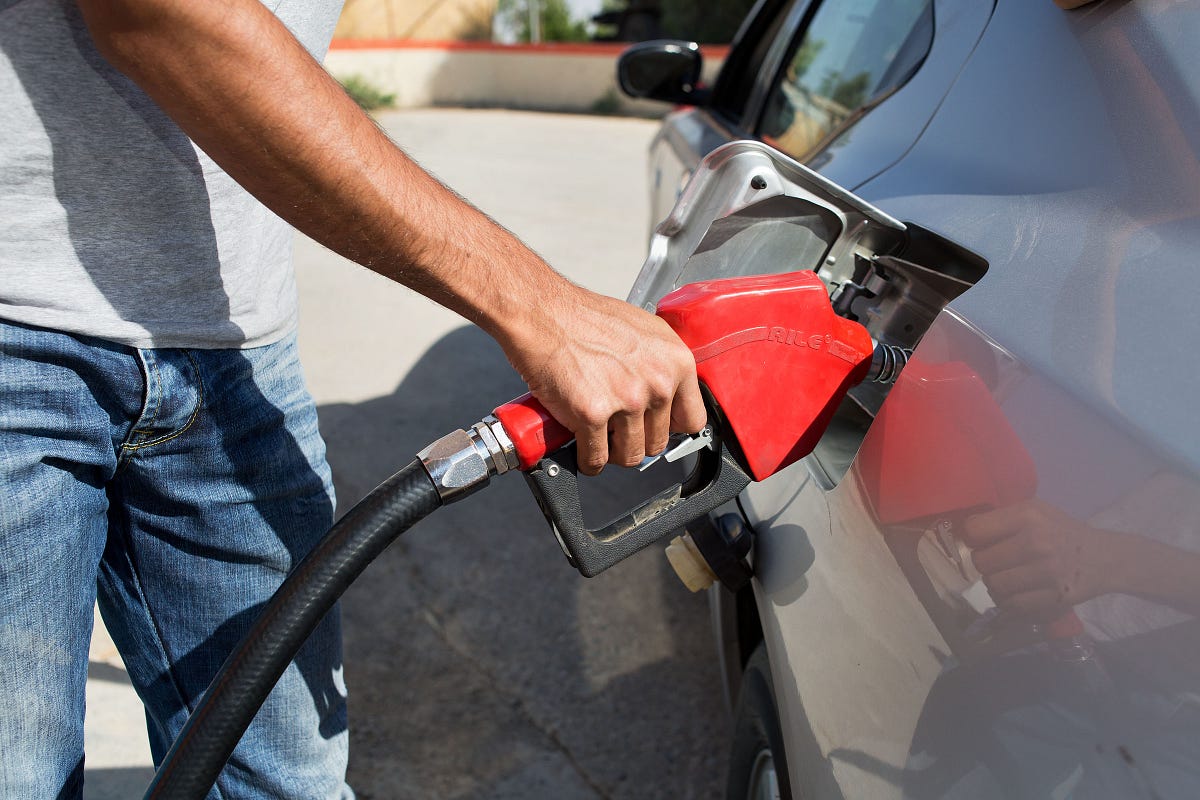 At left, a Kurdish driver fuels up in New Halabja. At right, fuel prices at a Kurdish gas station. Matt Cetti-Roberts photos
At left, a Kurdish driver fuels up in New Halabja. At right, fuel prices at a Kurdish gas station. Matt Cetti-Roberts photos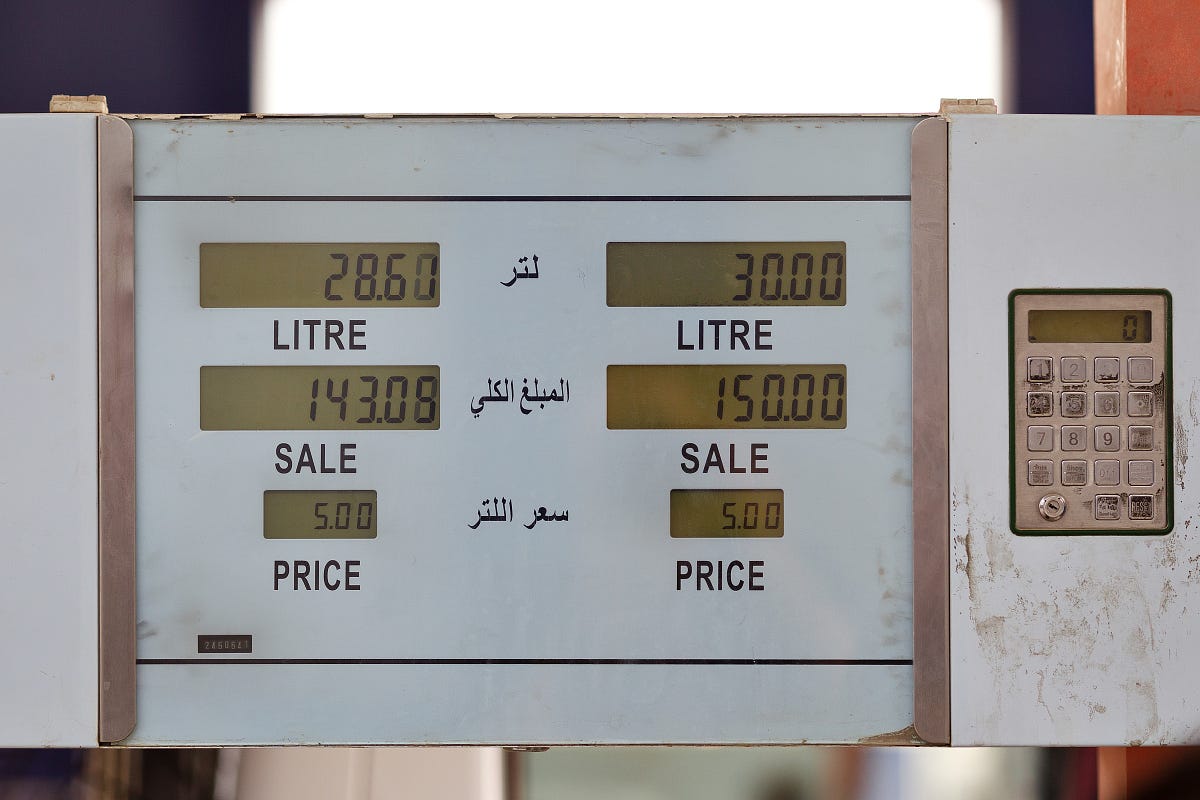
The shortage drove the typical fuel price from 500 Iraqi dinars to 1,500 per liter in many areas. In Erbil, prices were even steeper. Strict rationing limited each driver to only 30 liters as they fueled up.
In most areas, they could top off just once every two days. Many cities implemented a system allowing drivers to fill up based on their license plate number. Plates ending in odd numbers got gas station access one day. Even numbers got access the next day.
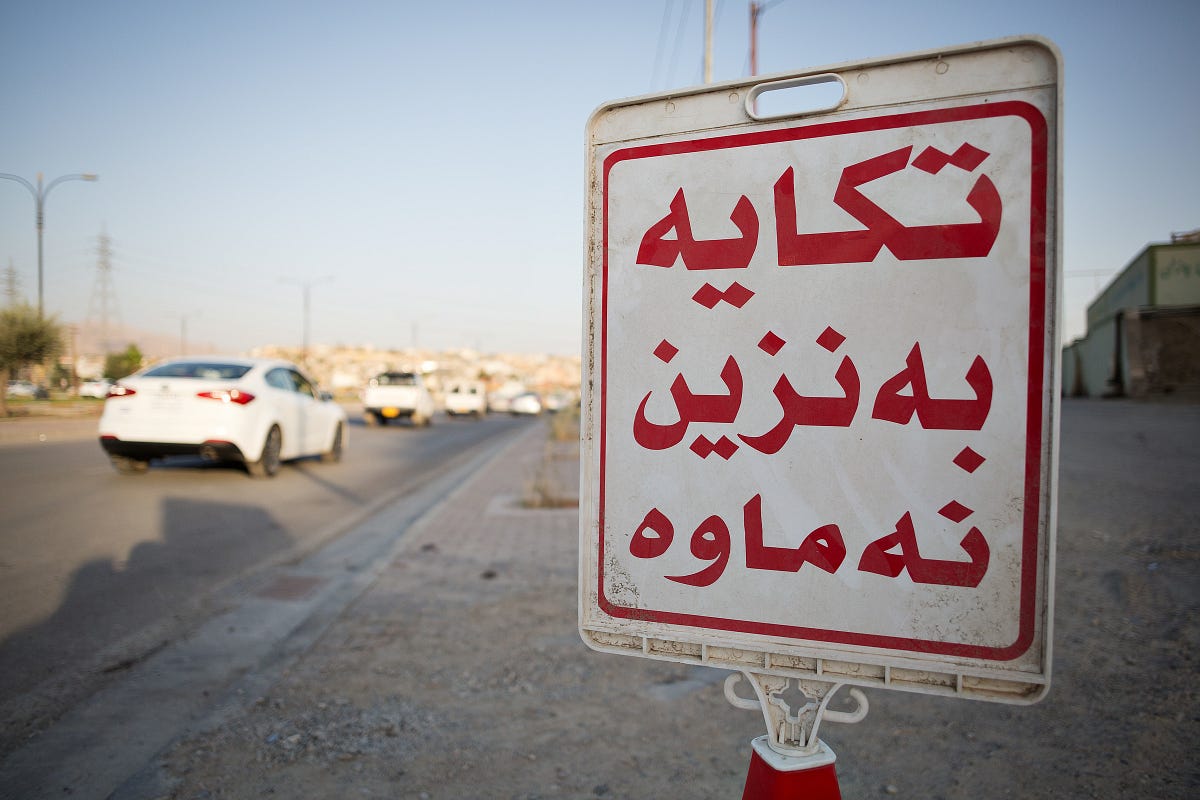 “Excuse me, the petrol is finished” reads a sign at a gas station in Sulaimaniyah, at left. At right, drivers leave cars in line overnight at Darbandikhan. Matt Cetti-Roberts photos
“Excuse me, the petrol is finished” reads a sign at a gas station in Sulaimaniyah, at left. At right, drivers leave cars in line overnight at Darbandikhan. Matt Cetti-Roberts photos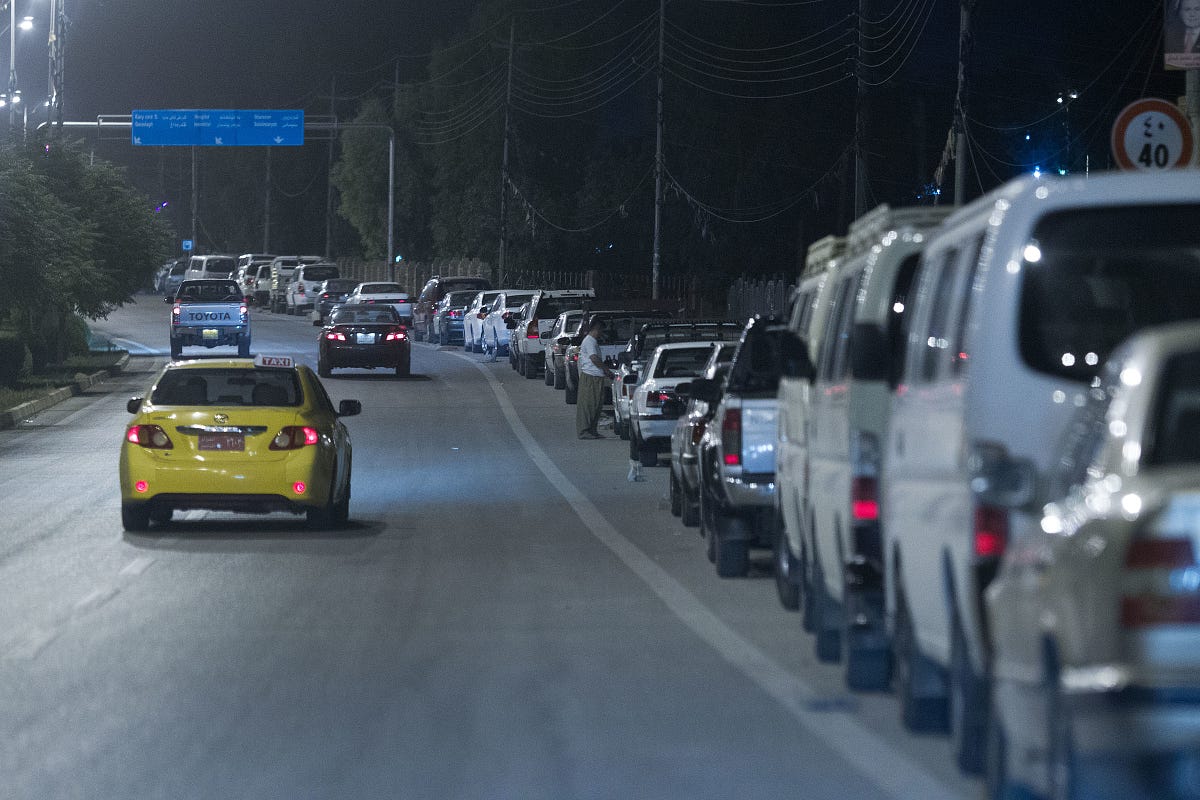
In some cases the lines got so long that frustrated drivers simply left their cars at stations overnight. The crisis had a huge impact on commerce. Kurdistan might be peaceful, but the war to the south affects it and the whole region.
Even the people lucky enough to get gas for their daily commutes had to wait as long as four hours for the privilege. In Erbil and other major cities, there were protests over the strict rationing.
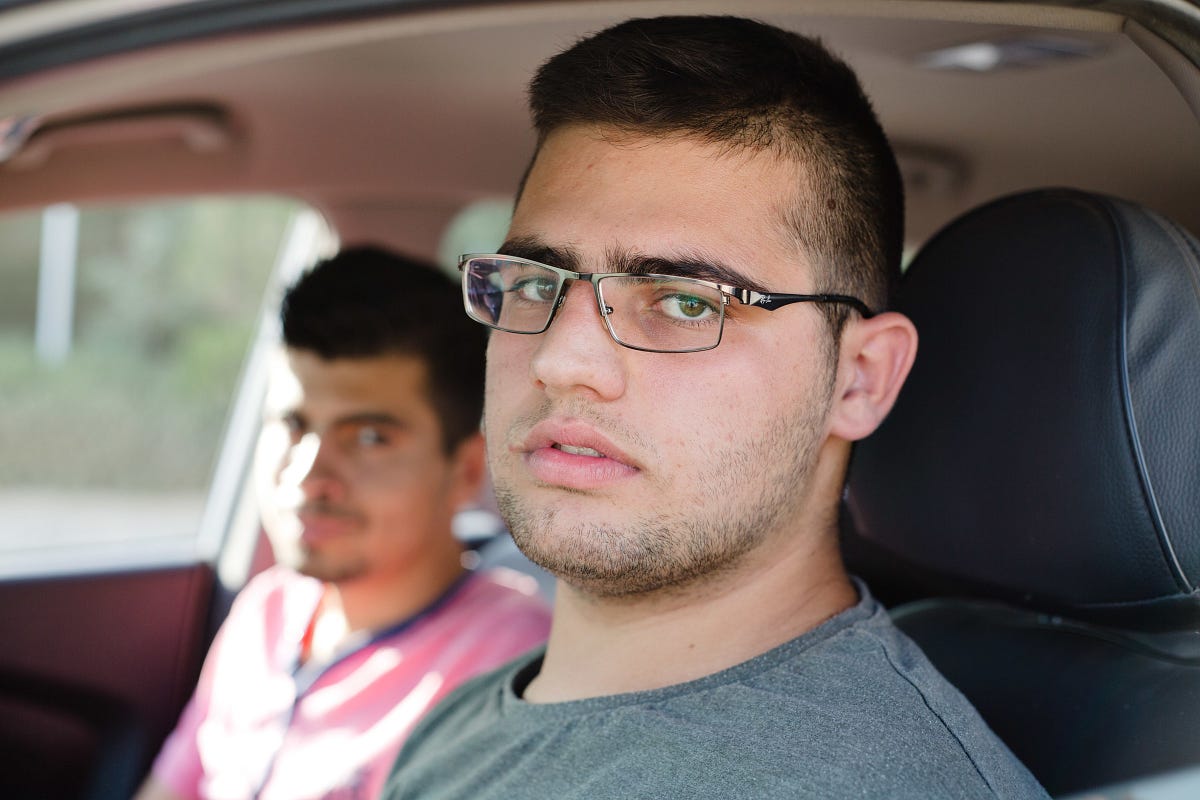 Bl’nd Azad. Matt Cetti-Roberts photo
Bl’nd Azad. Matt Cetti-Roberts photo
“We don’t have a problem between Sunni and Shia, we just want to save our borders from ISIS,” 19-year-old Kurdish student Bl’nd Azad said as he and a friend waited in line for gas in Sulaimaniyah.
When ISIS launched its offensive and the Iraqi army fled, Kurdishpeshmerga fighters moved to defend northern cities including Kirkuk. Though Kirkuk is firmly in Kurdish hands, the pesh frequently clash with ISIS outside the city.
“The problem is not just with Kirkuk” Azad said. “It is also with Tal Afar, Khanaqin and other cities. If these cities will be back to Kurdistan, we will be happy.”
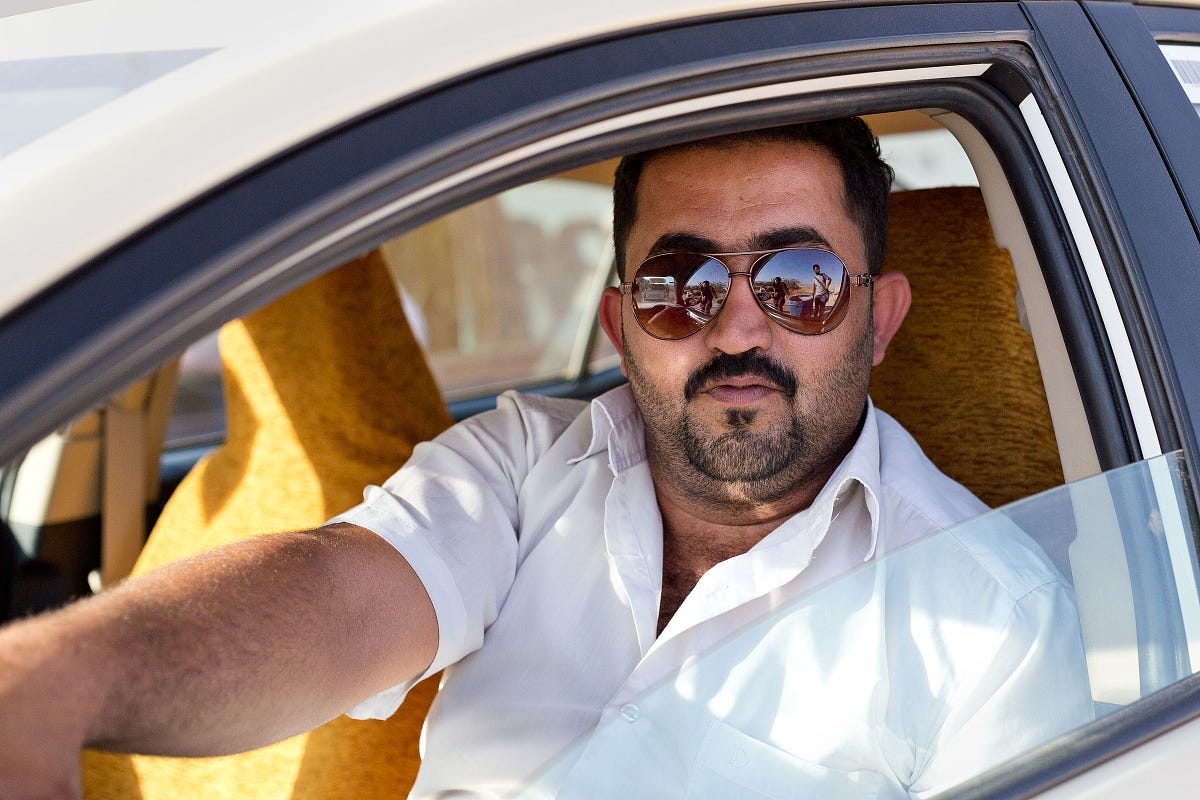 Barzan. Matt Cetti-Roberts photo
Barzan. Matt Cetti-Roberts photo
“We are in Kurdistan, we have everything, including a lot of oil and petrol that the world wants,” said Barzan, a 28-year-old cab driver from Sulaimaniyah.
He said he blames the government in Baghdad for the current problems. “We don’t have a good leader [in Iraq] and this is why the petrol lines [and] everything else are happening.”
He said he distrusts politicians in the south, but he’s equally distrustful of ISIS and its tribal allies. “[ISIS] are doing things in Islam’s name, but it’s far from Islam,” he explained. “It’s people doing the things they want to pay back the government.”
“The people are feeling that the government let them down, didn’t look after them, didn’t support them and there are some idiot people doing it to destroy the country,” Barzan added.
 Drivers wait in line for fuel in Sulaimaniyah. Matt Cetti-Roberts photo
Drivers wait in line for fuel in Sulaimaniyah. Matt Cetti-Roberts photo
https://medium.com/war-is-boring/isis-used-fuel-prices-as-a-weapon-4461cc0e8698
Barzan said his thoughts are with the peshmerga fighting in the south. “They are our brothers.”
The silver lining of the current crisis, he said, is that it provides opportunities for greater freedom from Baghdad. Barzan spoke optimistically about the peshmerga presence in Kirkuk as a possible prelude to the city fully and permanently joining Kurdistan. “Now there is a chance Kirkuk will return.”
Kurdistan Regional Government president Massoud Barzani recently told CNN’s Christiane Amanpour that Kirkuk would likely remain in Kurdish hands regardless of what happens in the south.
He hinted that the Kurds would seek greater autonomy, if not outright independence, in the wake of the crisis.
No comments:
Post a Comment